


Wednesday 2nd of July 2025 12:03 PM


The Patriarch of the richest, most powerful family in Alabama that you never heard of.
When discussing the dynamics of power, privilege, and hard work, the career of Raymond J. Harbert provides a compelling case study. Almost reclusive when compared to the ultra wealthy, the son of the late great John Murdoch Harbert has served as Chairman and CEO of Harbert Management Corporation, an alternative asset investment management firm, since its inception in 1993. His journey to the top of this international firm offers insights into how privilege and hard work intersect to shape professional trajectories.
Harbert's career began in 1982 at Harbert International, Inc., a subsidiary of Harbert Corporation. Over the years, he climbed the corporate ladder, holding positions such as Vice President of Business Development and President of Harbert Properties Corporation, the real estate subsidiary. By 1988, he was elected Vice President of Harbert Corporation, overseeing the firm’s investment portfolio. Two years later, he became President and CEO, bringing the entire firm under his leadership.
"But like many smart scions in the history of this country, he kind of wanted to step out of his father's shadow without dishonoring the name, or at least prove that he could do the great thing on his own," says Debbie Ballenger, business editor at 205Focus.com . "So he created his own hedge fund, Harbert Management Corp., and proved good at managing and investing other people's money, something that his conservative mother would not necessarily allow him to do with the family's fortune."
Quite good, actually. Harbert Management, based in Birmingham, has since become a Wall Street powerhouse, managing $12 billion in assets and holding stakes in giants like Microsoft, Xerox, and Pfizer. It also invests heavily in real estate and power generation.
Raymond Harbert is definitely his father's son.
John M. Harbert III: A Titan of Industry
In the annals of Alabama's history, few figures loom as large and as dramatically as Raymond J. Harbert's father, John Murdoch Harbert III. Born on July 19, 1921, in Greenville, Mississippi, Harbert would rise to become one of the most powerful and influential businessmen in the Southeast, leaving an indelible mark on the world through sheer will, ambition, and strategic brilliance.
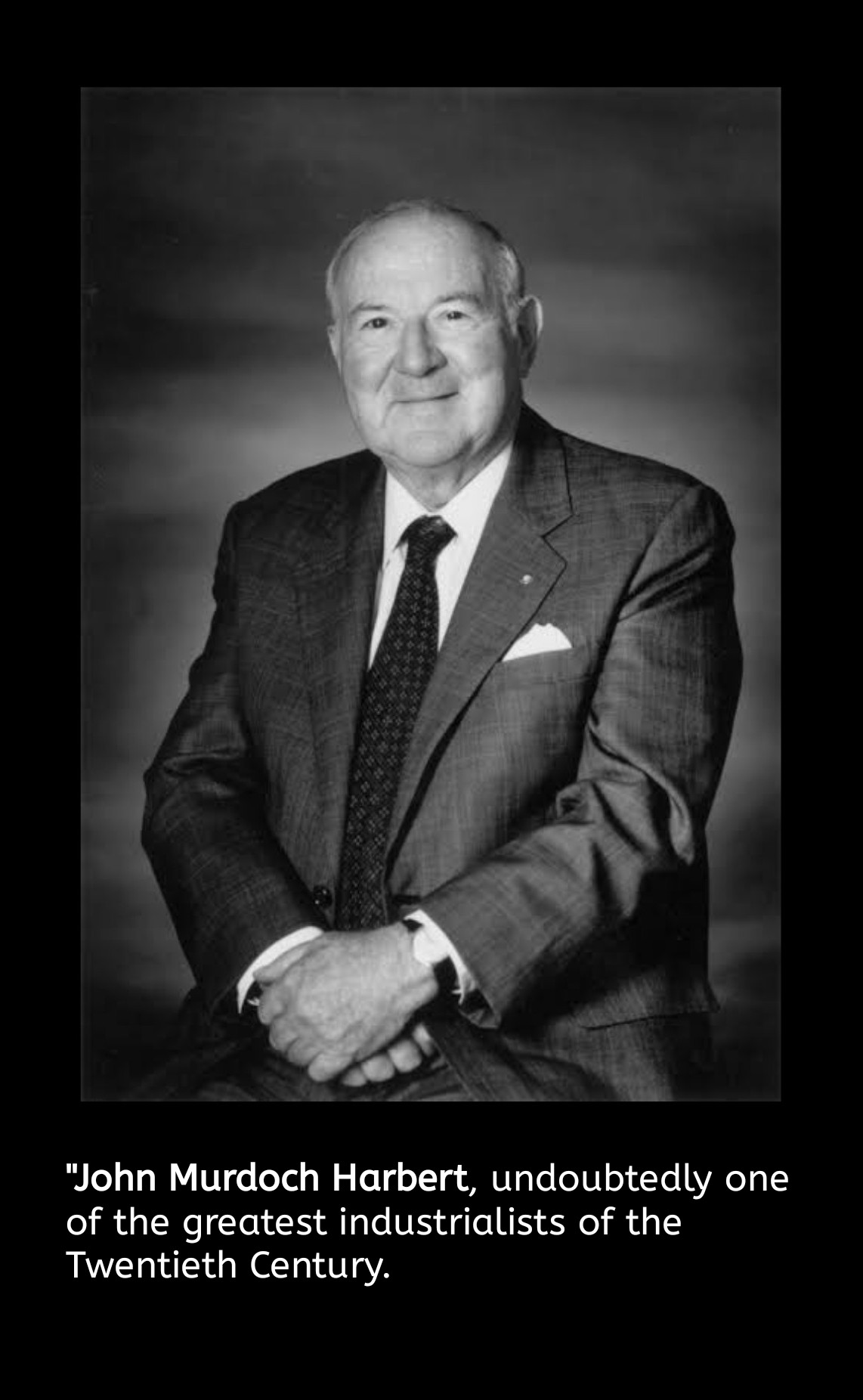
Harbert’s early life was a prelude to the grandeur that awaited him. His family moved to Birmingham, where the young John attended Phillips High School before completing his studies in Gulfport, Mississippi. In 1939, he entered the civil engineering program at Alabama Polytechnic Institute (now Auburn University), setting the stage for his future empire.
The advent of World War II saw Harbert drafted into the U.S. Army, interrupting his studies. Upon returning from the war in 1946, he graduated and immediately plunged into the world of construction with unparalleled fervor. With winnings from a dice game and the sale of war bonds, he and his brother Billy L. Harbert founded Harbert Corporation in 1949. Their first project, a bridge near Prattville, was a harbinger of the monumental undertakings that lay ahead.
Harbert's ventures were nothing short of epic. From constructing military bases and pipelines in the volatile Middle East to creating vital infrastructure around the globe, Harbert Corporation’s influence was vast and unyielding. The company’s projects, such as the Red Mountain Expressway in Birmingham, which unveiled millions of years of geological history, and the massive Riverchase planned community, are testaments to Harbert's audacious vision.
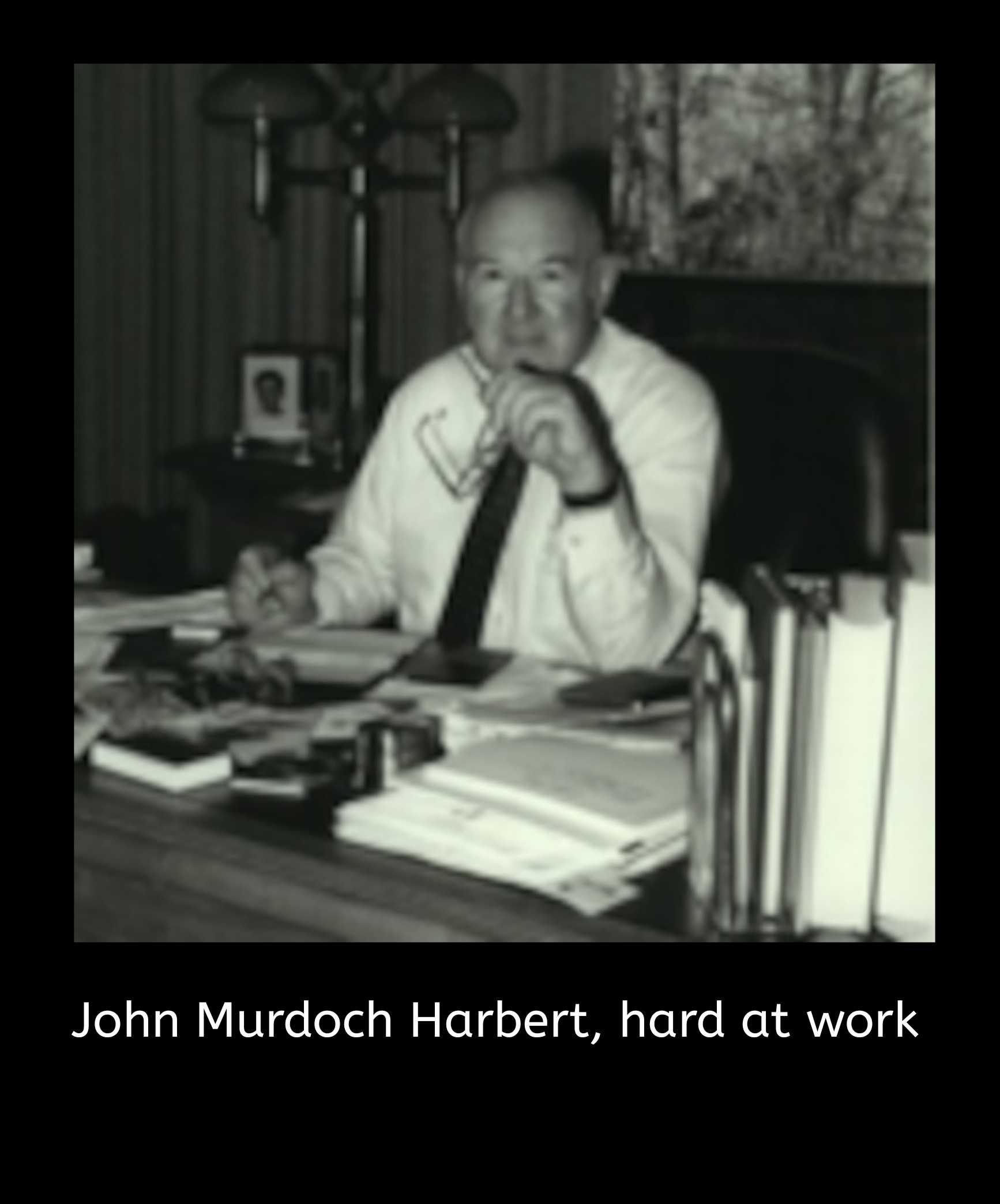
The 1960s and 1970s saw Harbert Corporation diversify into coal mining, acquiring 240,000 acres of coal reserves in Kentucky and Tennessee, and building pipelines in Angola and the Persian Gulf. These moves not only cemented Harbert’s status as a construction magnate but also demonstrated his uncanny ability to navigate and dominate the cyclical nature of the industry.
As the 1980s dawned, Harbert Corporation evolved once again, divesting from coal and barge-towing businesses to focus on oil exploration. Harbert's foray into the oil industry included a high-stakes, albeit unsuccessful, takeover bid for Gulf Oil Corporation alongside T. Boone Pickens. Despite this setback, his holdings in Gulf Oil, which later merged with Standard Oil to form Chevron, underscored his relentless pursuit of success and power.
John Harbert III was not just a businessman but a master strategist. His real estate ventures culminated in the construction of the Riverchase Galleria, one of the largest shopping malls in the United States, and the Hoover Metropolitan Stadium. His efforts in civic infrastructure, such as the Harbert Center and the AmSouth-Harbert Plaza, solidified his legacy as a builder not just of structures, but of communities and opportunities.
Harbert’s life was marked by accolades and honors, reflecting his unparalleled contributions to industry and society. From being named Marketing Man of the Year in 1967 to receiving the Silver Hard Hat Award and numerous honorary degrees, his legacy was continually reinforced by the recognition of his peers and the institutions he supported.

His philanthropy was as grand as his business ventures. Alongside his wife, Marguerite, he endowed a writing center at the University of Montevallo, contributed to Auburn University, and supported the Birmingham Museum of Art. The Harberts' commitment to education, the arts, and community organizations showcased their dedication to leaving a lasting impact beyond the business world.
John M. Harbert III’s story is one of audacious ambition, strategic brilliance, and monumental impact. His death on March 31, 1995, in Houston, Texas, marked the end of an era, but his legacy lives on through the towering structures, thriving communities, and enduring institutions he built. Harbert’s life was a testament to the power of vision and determination, a dramatic and epic tale of one man’s journey to the zenith of success.
Tiger Blood
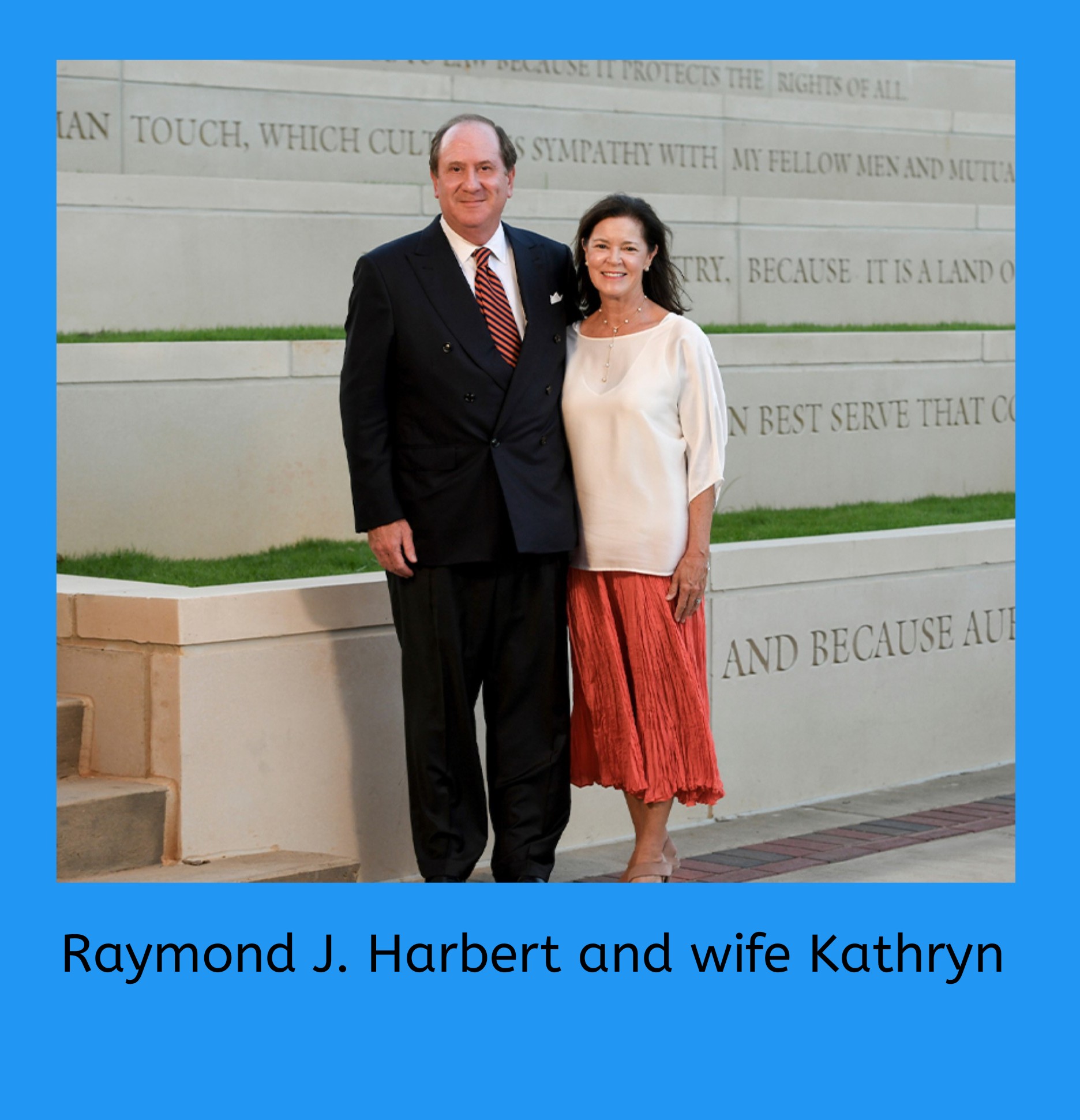
Reflecting on his educational journey, Raymond Harbert credits the influence of his father, of course, having learned ledgers of knowledge and wisdom at the old man's knee, but also Auburn University College of Business faculty members James Cox and John Blackstone. "Both were excellent professors who made a difference by motivating and challenging me to work harder on my studies," Harbert recalls. This foundation of hard work and academic rigor laid the groundwork for his future success.
Being a member of a prominent business family, Raymond Harbert acknowledges his privilege, having had access to opportunities and networks that facilitated his rise. His career at Harbert Corporation, the family enterprise, quite naturally allowed him to leverage these connections, gaining roles of increasing responsibility. Yet, his achievements also reflect significant personal effort and dedication.
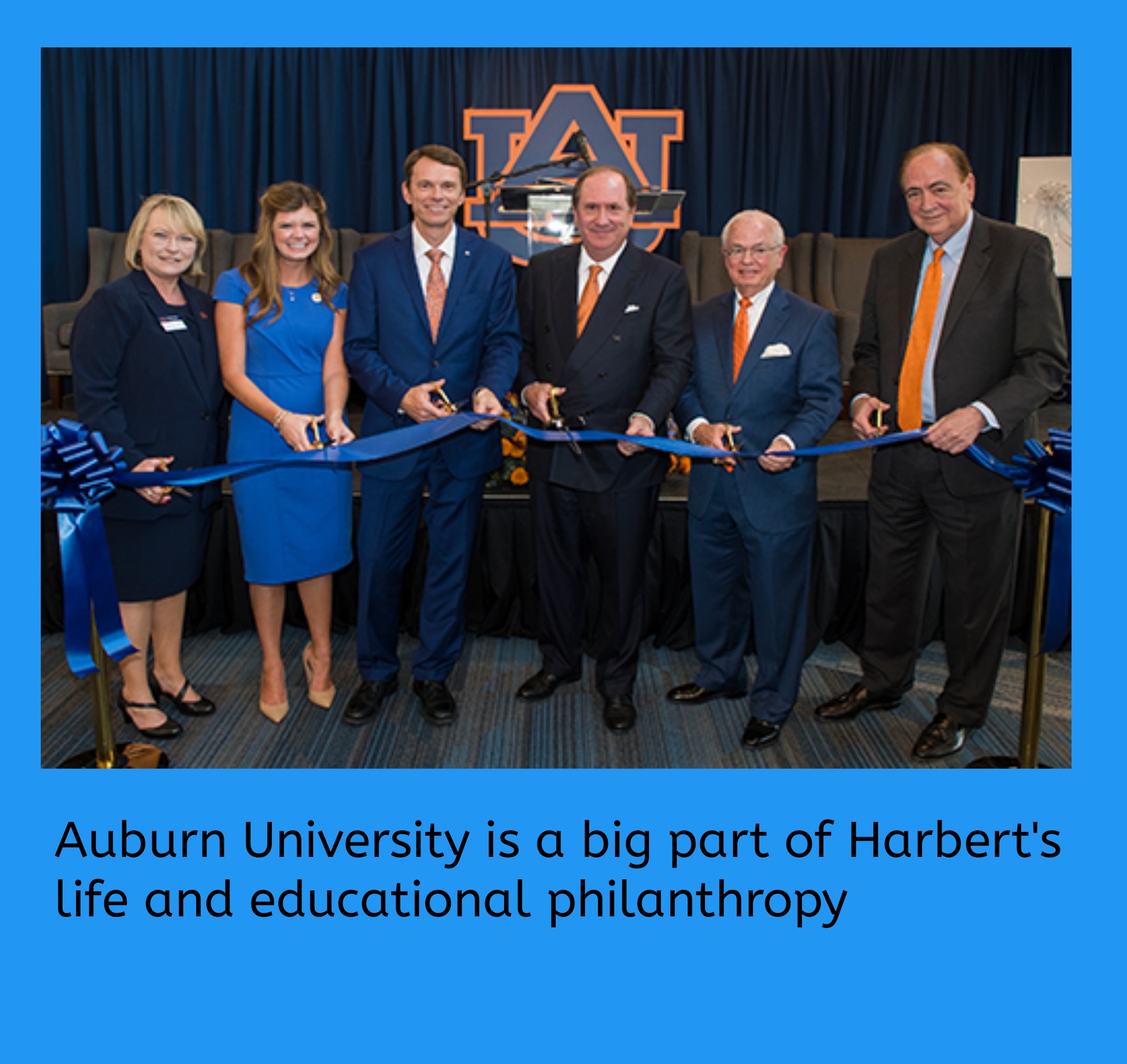
Auburn University has greatly benefited from Harbert’s success and generosity. His $40 million commitment, the largest gift in the university’s history, led to the renaming of the College of Business as The Raymond J. Harbert College of Business. This donation enhanced the college's prestige, providing funds for eminent scholar and endowed chairs, a doctoral program in finance, and research initiatives like the Harbert Investments Center and a supply chain management institute.
Harbert’s contributions extend beyond academia. He serves on various boards, including those of Auburn University, the Robert Meyer Foundation, Children’s Hospital of Alabama, and the Birmingham Business Alliance. His involvement in these institutions reflects a commitment to leveraging his success for broader societal benefits.
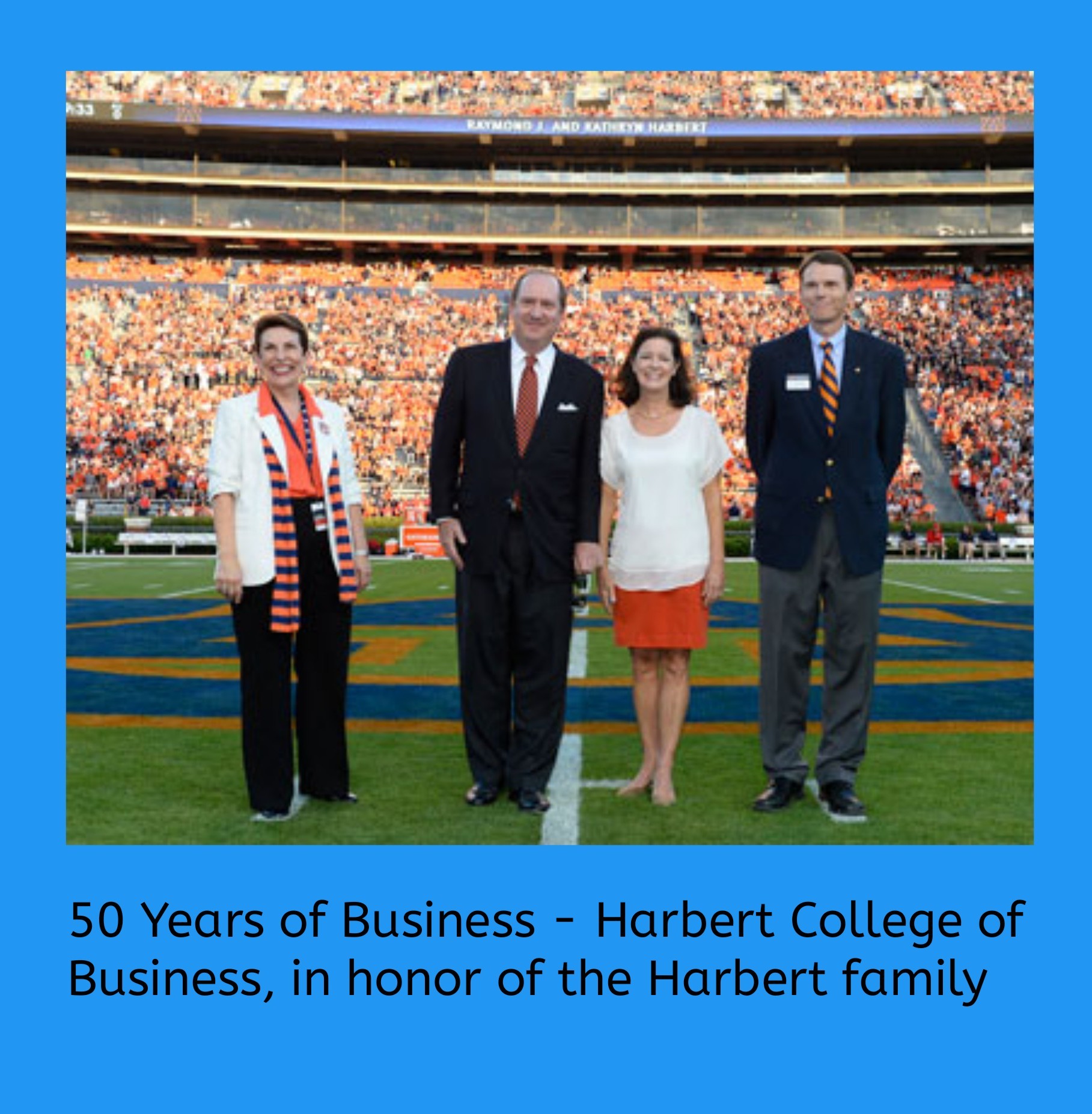
After earning his business degree from Auburn, Harbert’s career advanced rapidly. At Harbert International, he initially focused on business development before managing the corporation’s real estate subsidiary. His leadership as President and CEO of Harbert Corporation began in 1990, marking the consolidation of his family’s business under his direction. His accolades, such as Ernst & Young’s regional Entrepreneur of the Year Award for Financial Services in 2006, further attest to his professional accomplishments.
Family Feud
Things have not always gone according to plan in the House of Harbert, no matter how carefully Raymond Harbert has thought them through. The feud between he and his sister Marguerite Gray for a time split the family in two and threatened to tear it apart in what briefly promised to be Birmingham's most sensational court drama, before it was quietly settled in 2010.
The dispute, steeped in betrayal and intrigue, was rooted in Gray's 2006 lawsuit against her brother. She alleged that Raymond had deceitfully taken control of the remnants of the family’s construction empire, Harbert Corp., to bankroll his hedge fund, Harbert Management Corp.
Court documents revealed a bitter and acrimonious battle. Gray accused her brother of manipulating her into signing documents under false pretenses and excluding her from crucial business meetings of Harbert Corp., where she was a shareholder. The suit claimed that Raymond secured an improper loan from Harbert Corp. to launch his investment firm, exploiting his dual role as a director of Harbert Corp. and a principal in Harbert Management—an undeniable conflict of interest.
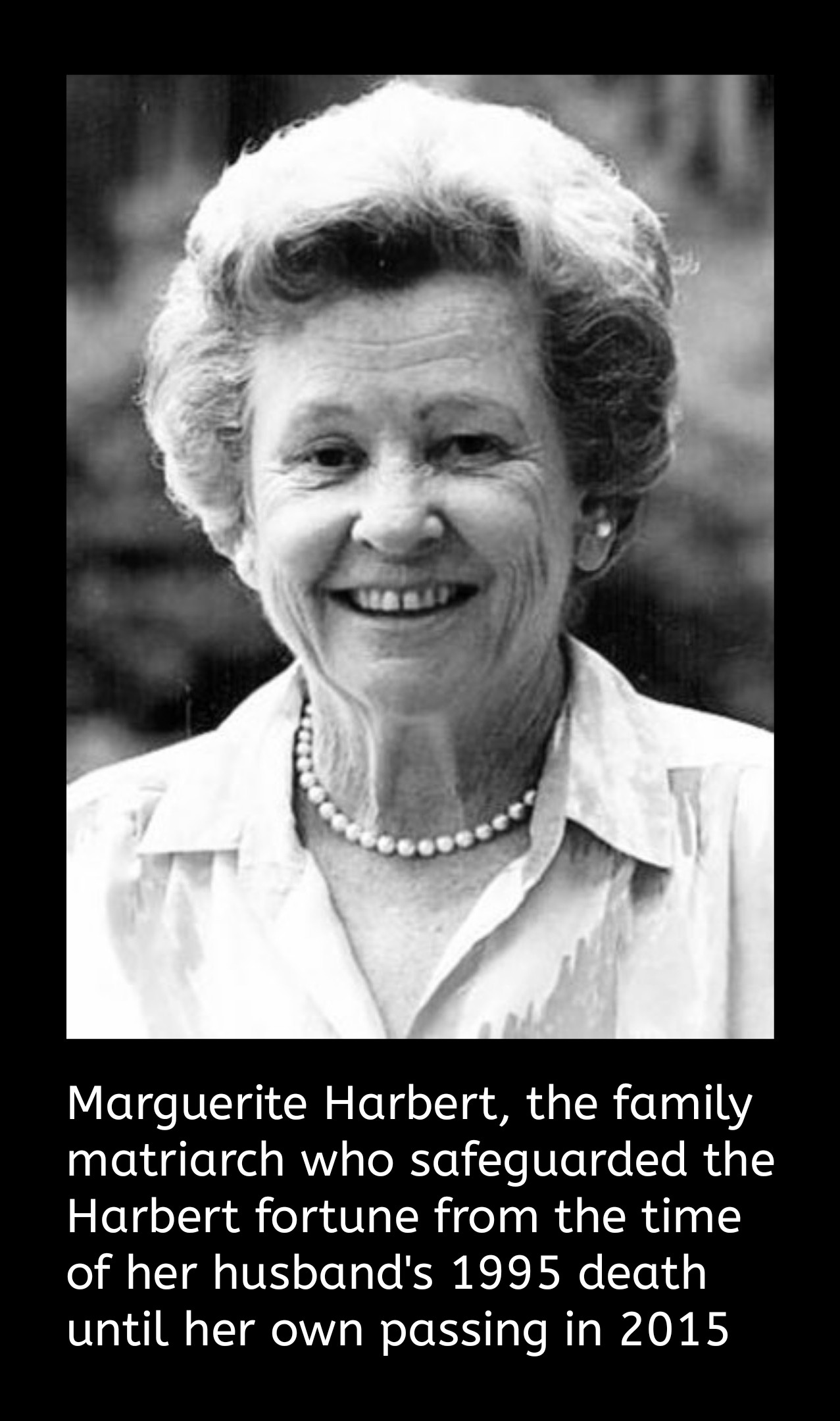
Raymond Harbert vehemently denied these accusations, insisting in court filings that the formation of Harbert Management was transparent and legal, and that it had been profitable for all involved, including his sister, who purportedly earned millions from the venture.
Despite the settlement, much about the case remains shrouded in secrecy after more than a decade on. Jefferson County Circuit Judge Houston Brown sealed most documents since the case was filed in 2006, hinting at the potentially explosive nature of the content.

The family drama was further compounded by the inclusion of nearly two dozen medical professionals on the witness list, suggesting deeply personal issues at play. Recent filings sought to bar any open court discussion about the "mental condition or mental capacity" of a third Harbert sibling, adding another layer of scandal to the proceedings.
The dramatic resolution of this high-profile family feud spared the Harberts from a public spectacle, but it left behind an air of mystery and scandal that lingered in Birmingham's business circles for years after.
A Father Like His Own
Beyond his professional life, Harbert is a dedicated family man and philanthropist. He and his wife, Kathryn Dunn Harbert, also an Auburn graduate, have three children. Their support for Auburn University has been unwavering, with contributions including the Raymond J. Harbert Eminent Scholar Chair in the Department of Finance and the Financial Lab.

In examining Harbert’s journey, it becomes clear that his success is a product of both privilege and hard work. His family background provided him with unique opportunities, but his dedication and strategic vision were crucial in capitalizing on these advantages. Harbert’s story underscores the complex interplay between inherited privilege and individual effort in achieving professional success.
Tags: Raymond J. Harbert, John Harbert lll, The House of Harbert, Alabama billionaire, The richest, most powerful family in Alabama